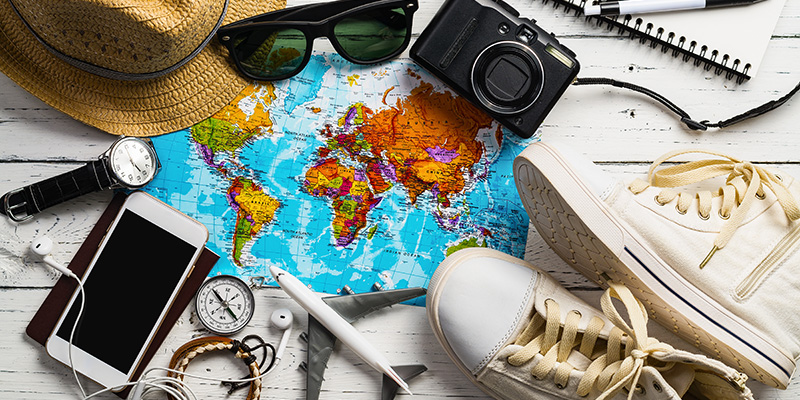How To Include a Travel Gap Year In Your Resume

You might have decided to take some travel time off before you start a full time job, or maybe you have worked a few years and are keen for a change of scenery. So, how do you show this gap year to your future employers?
There’s no hard rule and it’s often dependent on what role you’re applying for. But we have five tips on including your travel gap year in your resume.
1. Be honest
It’s okay to have taken the time to travel and explore new cultures. Many employers now acknowledge how important travelling is for personal growth, and to develop communication skills and empathy.
If you worked during your travels, list them altogether as they would likely be short jobs with references abroad.
If it was solely travel, consider the skills you might have picked up. Perhaps consider adding the countries if this could be an interesting talking point when you land an interview.
2. Who is your reader?
Consider the company you’re applying for. If you’re applying for a company in the travel industry, or for the international office at university – having travel experiences may be really valuable to the employer!
Think about what your travel was all about. Skip out adding travel if you really did just party in Ibiza for a month or spent 3 months lying on a beach in Thailand. At the end of the day, your employer does want to feel you will be a committed candidate to hire!
Always include any volunteering or charity work you completed overseas.
Think about whether it is relevant or not to add, and you should always tailor your resume to each company you apply for.
If the company requires travelling, then including your travel could be useful to show that you are reliable and capable of solo travel.
3. Think about the soft skills you acquired
You’ll be surprised that you might have actually developed your skills while you were travelling abroad. Take a look at this list of soft skills.
An example are communication skills – how did you overcome language barriers? Did you take the time to learn to adapt and pick up some basic phrases?
Don’t just add “communication skills” – think about specific scenarios that can showcase your skills. Even if you don’t have these down in your resume, you can always elaborate further these in your interview.
4. What hard skills did you acquire?
Whether you were travelling for 6 or 12 months away – you would have to plan where to live, organise transport and create a budget. Think about how you planned, organised and saved for your gap year.
How did you budget travelling for so long? Did you use a master spreadsheet and track all your spendings and bookings? Think of all your problem solving skills, proficiency in using spreadsheets or apps that helped you map everything out.
Did you write or photograph your travels? And, not just snapping a quick photo to send back home… but a proper photography portfolio or did you create content for Instagram or Youtube that developed a strong following?
These are incidental hard skills you may have picked up – so don’t discredit these and add them in your resume. (Pssst – and while you’re looking for a job, these are good ideas to help spruce up on your hard skills while you have returned home, it’s never too late!).
5. Don’t write too much
Keep your employment history for what it’s meant to be. Add a few bullet points, and keep the rest for your cover letter if you wish to elaborate. If it’s not relevant at all, don’t include it and save your notes for your interview.
How To Resume is a free resume builder that will help you create different resumes easily. Once you get started with one, you can duplicate and change it up!
